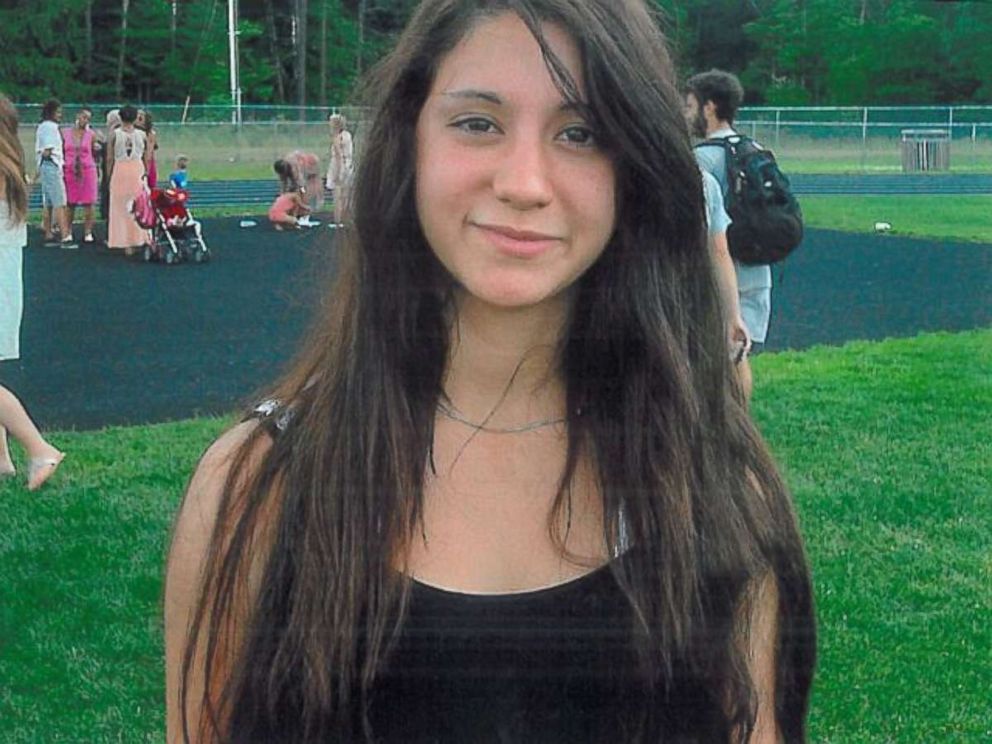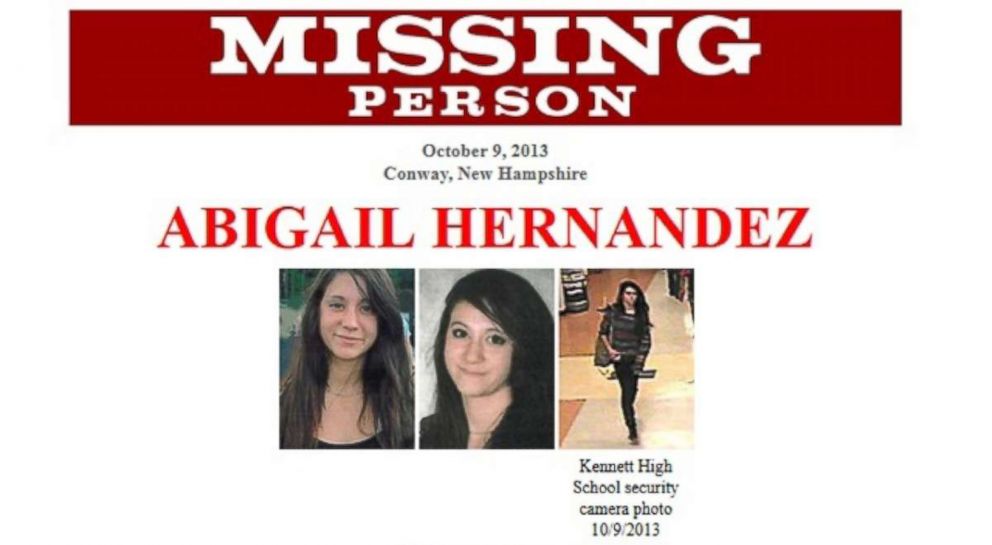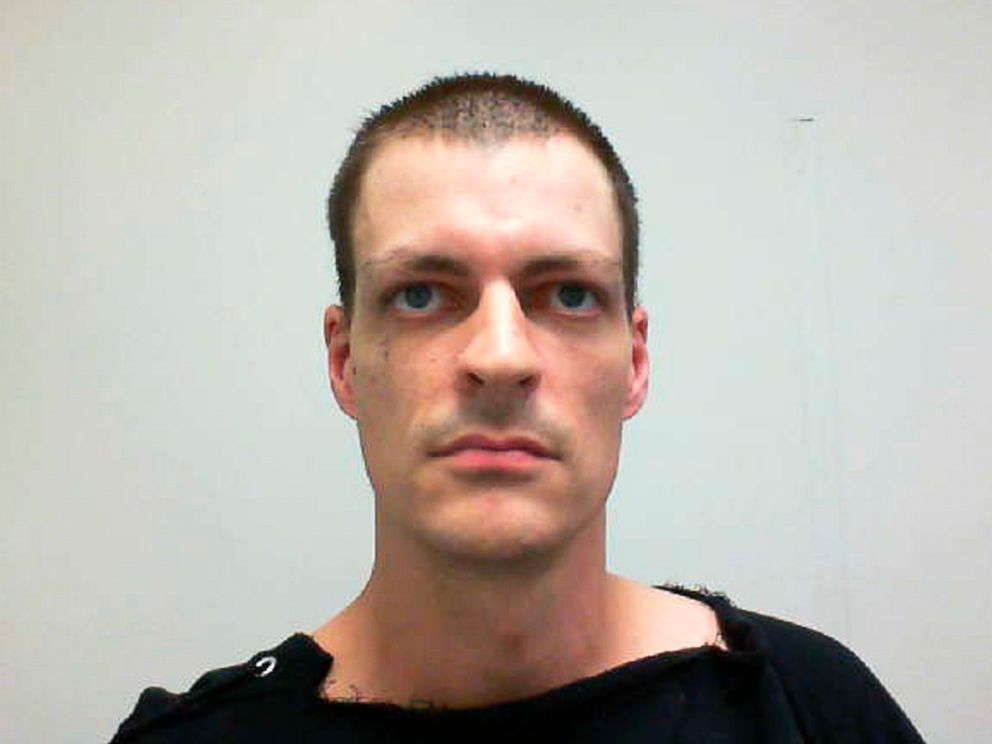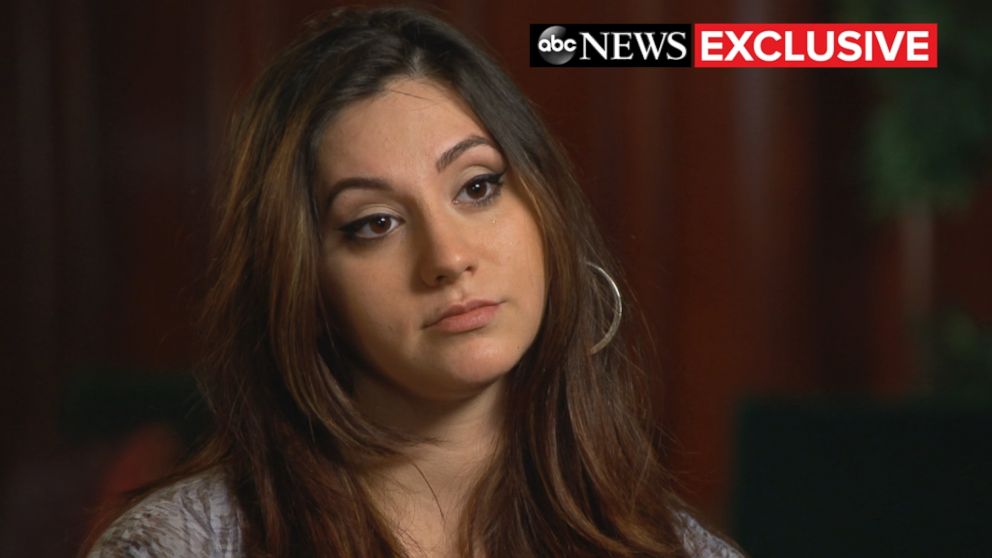Kidnapping survivor Abby Hernandez reveals how she stayed alive in captivity and never lost hope
"Every time I go outside now, I really try to appreciate sunlight."
Abby Hernandez was just 14 years old when she vanished without a trace while walking home from her school in North Conway, New Hampshire, on Oct. 9, 2013.
For nine months, Abby’s disappearance left her family, investigators and the community mystified. The search for the teen was one of the largest in the state’s history. Rumors and theories percolated through the northern New Hampshire town about what may have happened to the teen, who had just begun her freshman year at Kennett High School.

It was unlikely that anyone could have imagined the reality of what had actually happened to Abby — the teen had been kidnapped and hidden away just 30 miles north of Conway. There, her captor held her prisoner in a storage container, where she endured constant sexual assault and torture.
In an exclusive interview with ABC News’ “20/20,” Abby spoke for the first time about her experience and what her captor forced her to endure.
From the moment she realized she was being abducted, Abby said that her survival instincts, fueled by adrenaline, kicked in. “I remember thinking to myself, ‘Okay, I got to work with this guy.’ I said [to him], ‘I don’t judge you for this. If you let me go, I won’t tell anybody about this,’” Abby recalled.
But her initial attempts to negotiate with her abductor were unsuccessful, and she was driven to his property where she spent much of the next nine months in the container.
Even as she suffered daily abuse, Abby kept hope alive by praying for the strength to survive her ordeal.
“I remember I never said ‘amen’ in my mind. I never wanted to end my prayers because I didn't want God to leave me,” Abby said. “I just really wanted to live.”

One way that Abby kept herself alive was by thinking strategically and establishing a bond with her captor.
“I told him, ‘Look, you don't seem like a bad person. Like, everybody makes mistakes… If you let me go, I won't tell anybody about this.’ I really always kinda put it-- you know, ‘This strategy is always there.’”
Abby said her captor slowly became more trusting of her, even enlisting her to help him create counterfeit money in his home, she said. “Part of how I gained his trust, I guess, was… I went along with whatever he wanted to do,” she said.

Clinical psychologist Rebecca Bailey praised Abby’s resourcefulness.“It's amazing that she was strategizing. It is, again, very remarkable and, again, speaks of her ability to get out of her terror state and problem-solve.”
The tactic would pay off for Abby in a crucial way when her captor began giving her books to read, and one day, she discovered her captor’s name written in a cookbook he had given her. “I said, ‘Who’s Nate Kibby?’… And he just kind of breathed and he said ‘How do you know my name?’”

Ultimately, in July 2014, Kibby released her out of fear that police were about to visit his home due to a counterfeiting investigation. Lauren Munday, who said she had met Kibby online, said he gave her three $50 bills to help pay for a hotel room. When she used one of the bills at a local Walmart, it turned out to be counterfeit. She called Kibby and told him she had given him up to authorities.
“So, I told him, ‘Whatever you're ------- making in your damn basement, you better clean it up right now, because they are coming for your a--,” Munday told “20/20.”
Kibby made Abby promise not to reveal his identity to anyone.
“If I were going to write a textbook about how victims should deal with abductions… the first chapter would be about Abby,” said former FBI profiler and ABC News consultant Brad Garrett. “It’s always about bonding to the bad guy.”
On July 20, 2014, Kibby drove Abby back to North Conway and released her near where he had abducted her nine months earlier. She walked the remaining mile to her mother’s home.
“I remember looking up and laughing, just being so happy,” Abby said. "Oh my God, this actually happened. I'm a free person. I never thought it would happen to me, but I'm free."
One week later, police stormed Kibby’s property and took him into custody after Abby told them his name and location. Kibby eventually pleaded guilty to seven felony counts, including kidnapping and sexual assault. He was not charged with counterfeiting.
He is serving a prison sentence of 45 to 90 years outside of New Hampshire.
Though Abby says her captivity altered her life, she has also come to appreciate the new outlook on life it has afforded her.
“Every time I go outside now, I really try to appreciate sunlight and fresh air,” said Abby. “It really went in my lungs differently… I really try to never take that for granted.”
Now, as she embarks on a life that she didn’t know she would ever see, Abby wants to broadcast her message to others who have survived extreme trauma.
“Just don't lose hope… even when you feel like you've lost everything, hope is something that nobody can take away from you. And just keep that. And it'll keep you going,” she said.




